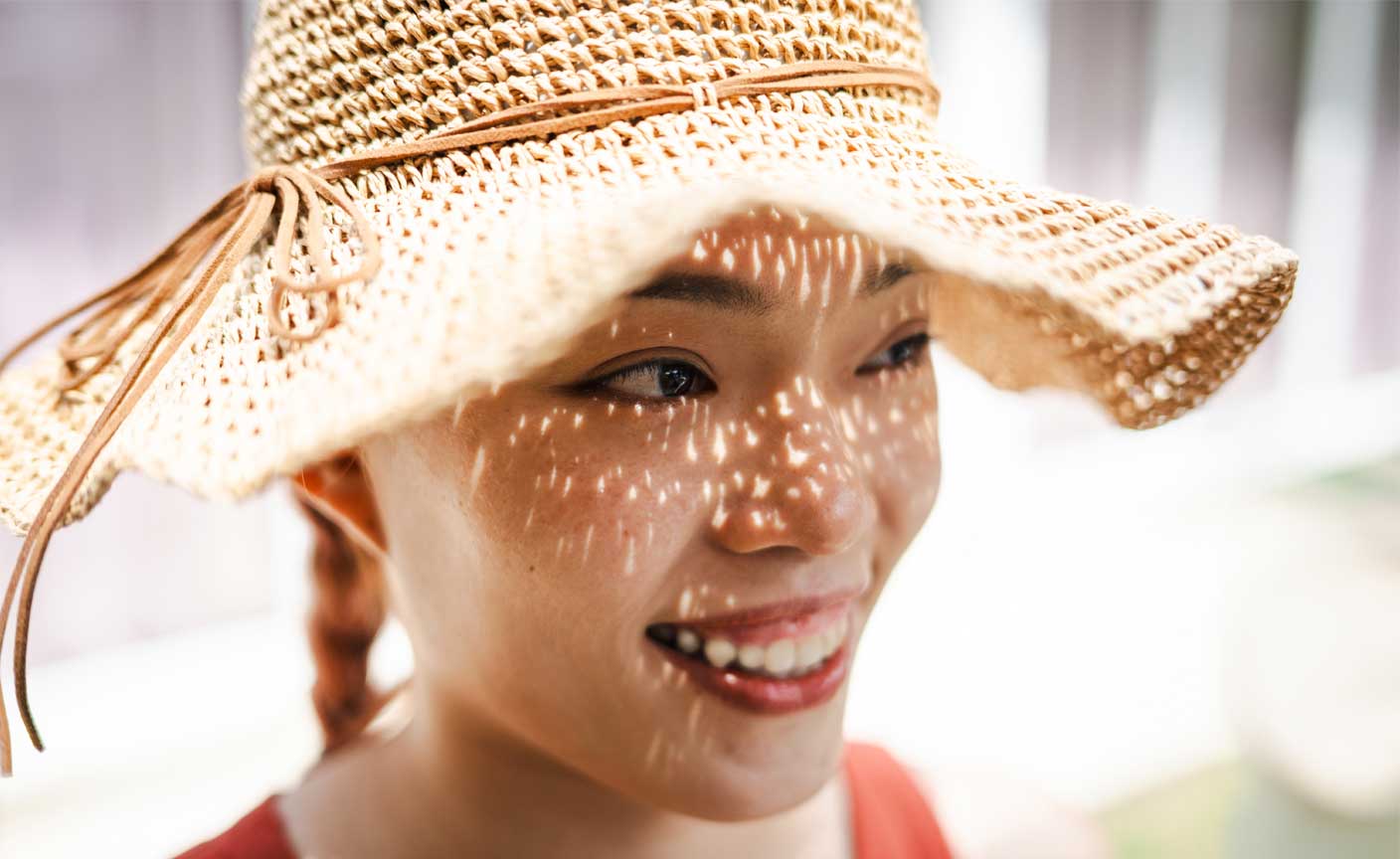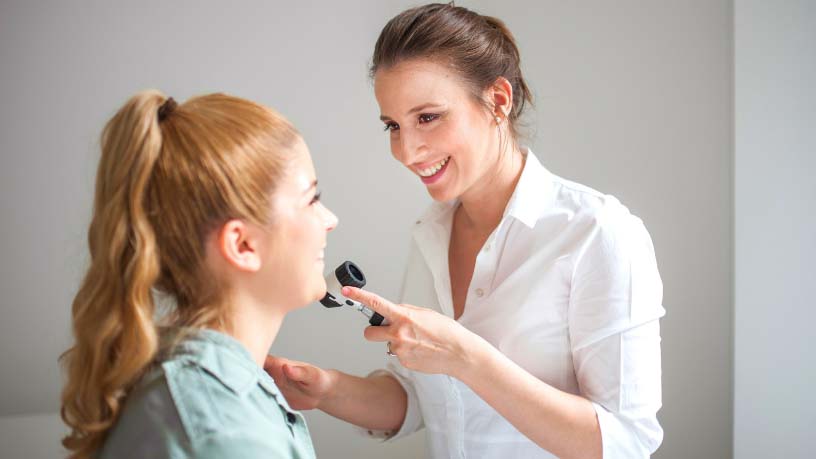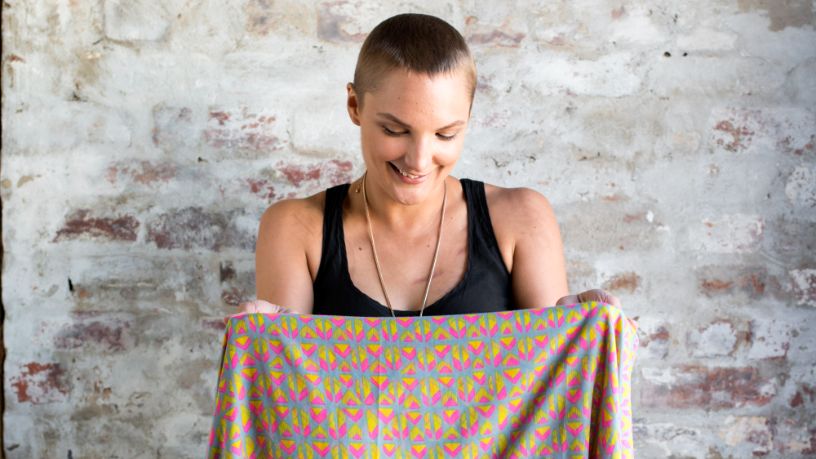Australia has the highest rates of melanoma in the world, with one person being diagnosed every 30 minutes.
Key takeaways
Almost all melanoma is caused by overexposure to UV radiation from the sun.
Early detection is key to recovery, so get regular skin checks with your doctor or dermatologist.
Being told you have stage 4 cancer at the age of just 37 is devastating. Being told you've beaten it just 4 years later is, says Adam Brown, is nothing short of a miracle.
Diagnosed with stage 4 melanoma when his wife Kristy was 8 months pregnant with their first child felt like a death sentence, says Adam.
"I thought at that point it was going to be the end," remembers Adam. "We basically sat on the lounge for a couple of days and took turns crying."
A year earlier in mid-2013, Kristy noticed a mole on Adam's back had grown.
Adam was quickly diagnosed and had surgery to remove the melanoma and some lymph nodes.
"At that point we thought the cancer had gone. We moved on with our lives and found out we were going to have a baby," says Kristy.
But in September 2014, when Kristy was heavily pregnant, she noticed a lump, like a tiny marble, just under the scar tissue on Adam's back.
The cancer was back and had spread to Adam's organs.
Shortly after the birth of their son Harry, and just before Christmas, the Melanoma Institute Australia called to say a new clinical trial had been approved and Adam was the first participant. The trial drug works by boosting the immune system's ability to fight off cancer cells.
"The great thing about the trial drug is that the side effects were very minimal," says Kristy. "Adam was able to work, play with Harry and live a normal life which was absolutely fantastic.
"You wouldn't have known he was having treatment for stage 4 melanoma," she says.
The drug really changed our lives, and it saved Adam’s life.
Within 3 months, all of Adam's tumours had reduced by half. Just 6 months later they reduced by half again.
"One year on, when I got a PET scan, there was no evidence of cancer whatsoever," says Adam. "It was amazing. I find it hard to believe that I went from being at stage 4 to being completely cancer free, it's unbelievable."
Melanoma and Australia
According to the Melanoma Institute Australia around 16,000 Australians are diagnosed with melanoma every year and more than 1,600 of them don't survive.
"It's the most common cancer for 15 to 39-year-olds, and the most common cause of cancer deaths for 20 to 39-year-olds, so it's a cancer that affects the young," says Melanoma Institute Australia CEO, Matthew Browne.
In fact, Australia has the highest rates of melanoma in the world, with one Aussie being diagnosed every 30 minutes.1
It's important to get to know your skin, check moles and freckles regularly, and check your partner, particularly in areas they can't see themselves.
"What you're looking for is any change in pattern, colour, shape, or if it becomes itchy or starts to bleed," says Browne. "If you notice any of these changes see your GP or dermatologist as soon as possible."
How to stay sun safe
While 90% of melanomas can be cured with surgery if detected early enough, prevention is always better. And with 95% of melanomas caused by overexposure to UV radiation from the sun, being vigilant whenever you're outside is key.
Stay sun safe by:
- wearing a broad brimmed hat
- using an SPF50 sunscreen and reapplying every 2 hours
- seeking shade (particularly from 11am to 3pm when UV rays are intense)
- wearing sun protective clothing
- wearing sunglasses.
How life has changed
Just over 4 years on from when Kristy first spotted Adam's melanoma, and after so much heartache, the couple welcomed a baby girl into their family: Gracie June Georgina Brown.
Her middle name is a tribute to Adam's oncologist, Professor Georgina Long, Conjoint Medical Director of Melanoma Institute Australia.
After all they've been through, Adam and Kristy say the experience changed their family for the better.
"The one thing that it has taught me is don't take life for granted and do what you want because life can be pretty short and ultimately you don't know what's around the corner," says Adam.
"Every day I'm so much more grateful for everything we have in our life and so is Adam," says Kristy. "Life is very precious, it's a gift and we're very, very aware of that after this experience."
"Sometimes I have to pinch myself to be honest because I think we are just so, so lucky," she says. "I think we've come out the other end of it as more positive people who have a lot more perspective on life and realise that each day really does count."
The Brown family's attitude to sun protection has completely changed.
"Before this experience I was pretty casual about how careful I was with sunscreen," says Adam. "Now we make sure everyone in the family has sunscreen and hats on."
"It takes 5 minutes to put sunscreen on, it takes 5 minutes to reapply in a couple of hours, so it's pretty easy to give yourself peace of mind and not have to go through the battle that we went through."

The Aussie sun can leave a mark
Resources
Melanoma Institute Australia offers online resources for patients as well as information on how to donate and stay sun safe. You can also host or attend a Melanoma March event and help raise funds for life-saving research.

At Bupa, trust is everything
Our health and wellbeing information is regularly reviewed and maintained by a team of healthcare experts, to ensure its relevancy and accuracy. Everyone's health journey is unique and health outcomes vary from person to person.
This content is not a replacement for personalised and specific medical, healthcare, or other professional advice. If you have concerns about your health, see your doctor or other health professional.
1Melanoma Institute Australia. (2024). Melanoma Facts. Melanoma Institute Australia.
You might also like...
Cancer: The importance of screening and early detection
Having regular health checks and screenings can help detect cancers early and improve survival rates. Learn about the common screening tests in Australia.
Skin checks: Everything you need to know
Skin cancer is common in Australia, but early detection can significantly decrease your risk of a serious outcome. Discover different ways to check your skin.
Emily’s story: From cancer survivor to entrepreneur and mother
Emily kicked cancer 3 times. Through her experience, she was inspired to start a business and was given an unexpected miracle. Read about her journey.
Taking care of your mental health: Who do you call?
Looking for mental health support? Read this guide to find out what services are available.





